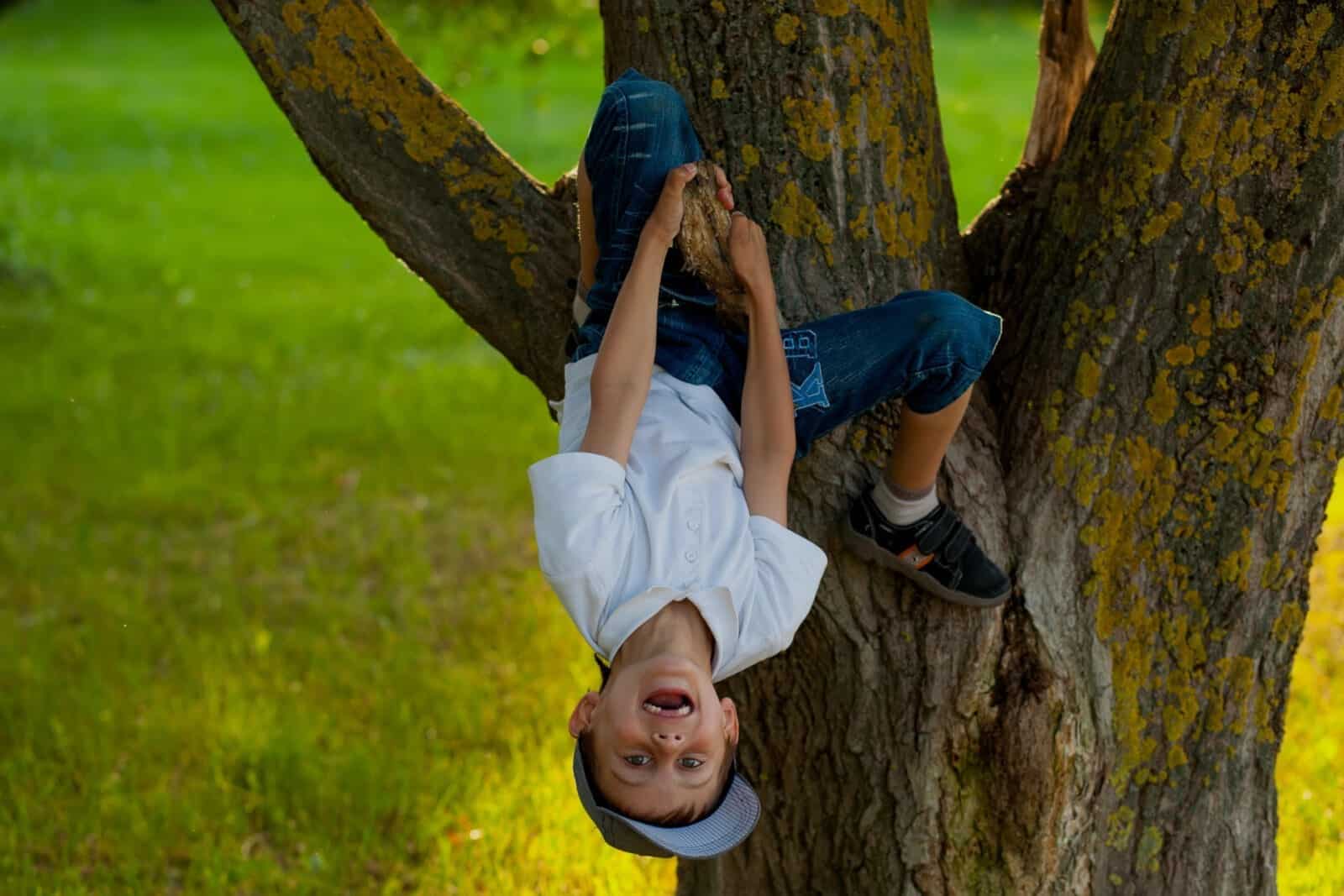
Thank you to Professor Helen Dodd (University of Reading) for providing this post.
When children play in an adventurous way, climbing trees, riding their bikes fast downhill, jumping from rocks, they experience feelings of fear and excitement, thrill and adrenaline. In our recently published conceptual paper, Dr Kathryn Lester and I argue that these experiences, as well as the feelings of fear that accompany them, may provide vital learning opportunities that help prevent the development of problematic anxiety in children.
Over the past few decades, a lot of research has been done on anxiety disorders in children, to better understand who is at risk, why they’re at risk and what we can do about it. Although there is still a lot of work to be done, we have a reasonable idea now about the kinds of thoughts, feelings and behaviours that affect children’s likelihood of experiencing anxiety (e.g. intolerance of uncertainty, avoidance, anxiety sensitivity, maladaptive coping). We are confident enough about these mechanisms that researchers have started to develop and evaluate programmes that target them to try to prevent anxiety in children. Many of these programs take a cognitive behavioural approach, for example see the Cool Little Kids programme.
In our conceptual paper, we draw on our knowledge of cognitive and behavioural factors associated with children’s anxiety to propose that a number of these factors could be targeted by what we call adventurous play.
In the paper we state that adventurous play is ‘child-led play where children experience subjective feelings of excitement, thrill and fear; often this occurs in the context of age appropriate risk-taking’.
Other researchers, like Professor Ellen Sandseter refer to this type of play as Risky Play. In our opinion these are different names for the same type of play, we simply chose adventurous play because we found that some parents, at least in the UK, misinterpreted the meaning of risky play.
The main argument of our conceptual paper is that adventurous play provides exposure to uncertainty, fear, arousal and coping and therefore an opportunity for children to learn about each of these. In order for children to learn to tolerate uncertainty, they need the opportunity to feel uncertain. Similarly, to learn about physiological arousal (racing heart, sweaty palms and butterflies in their stomachs) they need the opportunity to experience these sensations. Adventurous play provides a non-threatening way for children to experiment with these feelings by exploring age-appropriate risks in their play. In turn, these experiences may allow children to learn about uncertainty, fear, risk-judgement and coping; learning that may later help to protect them from becoming overwhelmed by anxiety when they are faced with a situation that is scary or uncertain.
Unfortunately, many children today do not have the same opportunities to play in an adventurous way that children did in the past. Over the past few decades there has been a substantial decline in the amount of time Western children spend playing outdoors. There are many reasons for this decline but one important reason is the increased emphasis on keeping children safe from physical harm. Of course, we all want to keep our children safe but there is concern that we may be keeping children too safe. By overly protecting children from physical harm we may increase their risk for emotional problems by denying them opportunities to learn through adventurous play.
Our programme of research over the coming years will build on this conceptual paper and explore whether we may decrease the likelihood of children experiencing problematic anxiety by increasing their opportunities for adventurous play, both in and out of school.
—
Professor Helen Dodd is a UKRI Future Leaders Fellow and Professor of Child Psychology at the School of Psychology and Clinical Language Sciences, University of Reading, United Kingdom

